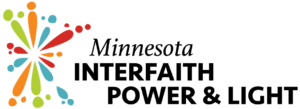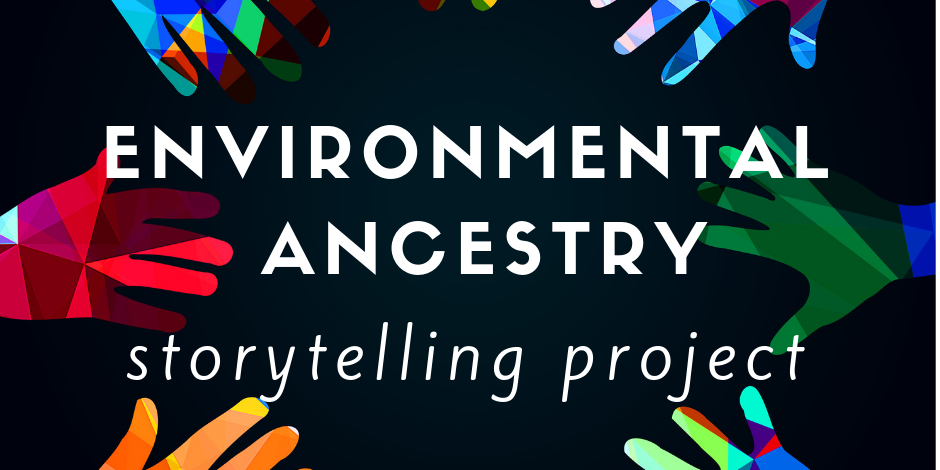Introducing the Environmental Ancestry Storytelling Project
This winter and spring, the Environmental Ancestry Storytelling Project will bring communities together to discover their own environmental ancestry stories, how this informs and empowers us in the present and what our collective action will be- rooted in justice, place and the land. Particularly we will hear stories from Native communities actively working to protect their sacred land and water against the Line 3 Enbridge Pipeline and stories of immigration to the US.
About the Project
The Environmental Ancestry Storytelling Project invites you to participate in one of three day-long community workshops. These workshops will be hosted by one of three cultural artists (bios below).
In the workshops, these hosting artists will share their art form and guide participants in developing they own stories among peers, highlighting the use of story for social change. Through hearing the powerful stories of mentors and sharing dialogue with fellow novice storytellers, workshop participants all grow in their understanding of how culture, ancestry and place shapes their stories. Afterwards, few workshop participants who wish to continue to craft their stories will meet individually with the hosting artist for mentorship.
This will culminate in a storytelling MainStage event where selection of artists all share their crafted stories with a wider audience. This event will be modeled after other live storytelling initiatives such as The Moth. Story submissions will be related to the theme of environmental justice, culture and place. This event will embody the idea that powerful narrative can be leveraged to build movements- informing and inspiring others to action. Participants will grow in their appreciation for storytelling, and through these stories, consider how culture is shaped by connection with others and the natural world.
Who is invited
Everyone is a storyteller! We are excited to welcome people new to telling their stories as well as people who are more practiced.
Please register your interest here. Space is limited to 20 participants. We will curate the registration list to make sure a diverse group of community members have the opportunity to participate.
Why
The Environmental Ancestry Storytelling project is an initiative to explore the power of storytelling in creating social change. At the root of this project is the understanding that storytelling is at the center of all traditional cultures as a method for learning, connecting, healing and understanding our own personal experience is shared by others, how our ancestors navigated challenges, crises and persevered, and how they were shaped by and shaped the land. In learning this we can gather our own courage for the unique challenges of our time and continue the traditions that will benefit us and our earth.
Who
Minnesota Interfaith Power & Light is working in partnership with artists and communities such as Gandhi Mahal and Hope Community to bring this project to the larger community. The art of oral tradition requires being a compelling storyteller, having cultural ties to the practice and mastering the knowledge of be shared. The orators featured in the EAP have unearned recognition within and been their communities through their storytelling, writing, teaching and performing. Louis Alemayhu is a poet, a community organizer with Environmental Justice Advocates of Minnesota and a teacher of environmental sustainability. Native songwriter, peel and producer Lean Lemm has a Masters of Fine Arts in Creative Writing and was a Cedar Cultural Center commission recipient in 2017-2018 for her original composition RUINS. Ifrah Mansour is a multimedia artist, incorporating word, movement, and visual art. Her recent production “How to Have Fun in a Civil War” was featured around the state.
When/Where:
Workshop 1: February 16, 2019 from 10:00am – 4:00pm. McRostie Art Gallery, Grand Rapids. Free lunch provided. Please wear layers and bring warm clothes as there will be an invitation for an outdoor activity as part of the free.
Workshop 2: March 16, 2019 from 10:00am – 4:00pm. Gandhi Mahal Restaurant. Free lunch provided. Please wear layers and bring warm clothes as there will be an invitation for an outdoor activity as part of the free.
Workshop 3: March 23, 2019 from 10:00am – 4:00pm. Gandhi Mahal Restaurant. Free lunch provided. Please wear layers and bring warm clothes as there will be an invitation for an outdoor activity as part of the free.
Ongoing mentorship will be scheduled on an individual basis with artists.
MainStage Event: In Grand Rapids we will have a MainStage Environmental Ancestry Storytelling event in April and in the Twin cities in June. Exact Date and Locations TBA.
How Much? Free! This project is made possible by a generous grant from the MN Arts Board.
History
The idea for this project grew out of our MNIPL’s past work. We have hosted storytelling circles with our Gandhi Mahal and All Nations Kitchen garden partners in past years when orators shared this stories and prompted dialogue about culture and place. Our annual Interfaith Iftar, hosted with many partners during the season of Ramadan, centers the voices of Muslim organizers and brings together different faith communities around story. Storytelling is integrated into all fo MNIPL’s work, as part of our approach to engaging faith communities in climate action, MNIPL has developed the “Climate conversation” a facilitated conversation that invites “stories of connection” which serves to frame the implications of climate change around shared values.
Artist Bios
Ifrah Mansour is a Somali, refugee, muslim, multimedia artist and an educator residing in Minnesota. Her artwork explores trauma through the eyes of children to uncover the resiliencies of blacks, muslims, and refugees. She interweaves poetry, puppetry, films, and installations. She’s been featured in BBC, Vice, Okayafrica, Star Tribune, and City Pages. Her critically-acclaimed, “How to Have Fun in a Civil War” premiered at Guthrie Theatre and is on touring to greater cities in Minnesota. Her first national museum exhibition; “Can I touch it” premiered at Minneapolis Institute of Arts. Her visual poem, “I am a Refugee” is part of PBS’s online Film festival. “My Aqal, banned and blessed” is on view at Queens Museum. Learn More: www.facebook.com/ifrahmansourart
Leah Lemm (Mille Lacs Band of Ojibwe) is a singer/songwriter, poet, and radio producer. She recently obtained her Master of Fine Arts in Creative Writing/Poetry from the Institute of American Indian Arts in Santa Fe, NM. Leah was a Cedar Cultural Center 2017-18 commission recipient during which she wrote and performed her original composition, RUINS, which follows moments of ancestral lessons, earthly and celestial perspectives, and the dawn and sunset of time.
soundcloud.com/molecularmachine/

Born in Chicago of African and Native heritage, Louis Alemayehu, a multicultural elder, developed his poetic skills and musical sensibilities as a part of the Black Arts Movement in the 1970s. He believes that poetry is a tool for healing; his performances are lyrical twinings of jazz, chant, poetry and song with art-as-ritual, often performed ceremonially. He teaches Environmental Sustainability in Minnesota at the Higher Education Consortium for Urban Affairs, and facilitates the creation of Permacultural farms and early childhood schools in rural West African villages. He also conducts workshops on Mindfulness Meditation and community-building.
Special thanks to the Minnesota Arts Board and the Bush Foundation for generous grant support of the Environmental Ancestry Storytelling Project.



